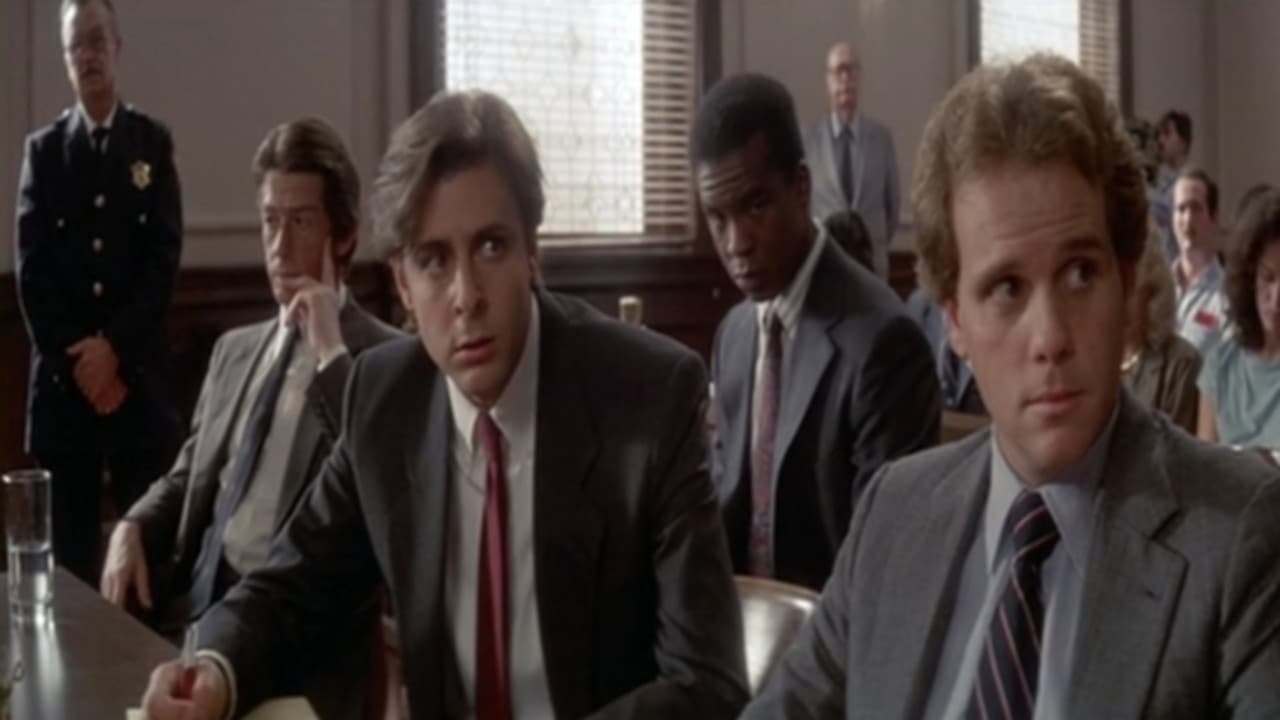
Directed by: Bob Clark
Starring: Judd Nelson, Elizabeth Perkins, John Hurt, Darren McGavin, Dan Monahan, David Alan Grier, Nancy Marchand
From The Hip almost works in spite of its loud, obnoxious protagonist. Centered around a murder trial of a seemingly guilty English professor, From The Hip is well done enough within its genre to be passably entertaining. Bob Clark, whose directing career reached its zenith with A Christmas Story and its nadir with Porky's and Baby Geniuses, moves things along well enough, but should have begged Judd Nelson to dial down.
Nelson plays Robin "Stormy" Weathers, a novice attorney at a big Boston law firm who gains national attention by turning a simple assault case into a circus. Through inventive and somewhat dubious means, he wins the case and is made a junior partner. Life is good, until he is assigned the case of accused murderer Douglas Benoit (Hurt). "The case is unwinnable," Stormy tells Benoit, but Benoit thinks Weathers can work magic and conjure a "not guilty" verdict. It won't be easy, considering witnesses placed Benoit at the scene and the murder weapon was found in his car. Hurt is charmless and malicious as Benoit, who maintains his innocence despite his general aloofness and his uncanny ability to be disliked.
Stormy's ideas of defending his client include yelling his opening remarks at the jury and smashing the murder weapon (a hammer) into a table, breaking lots of furniture in the process while trying to prove a point that no one knows what a hammer hitting a skull sounds like. The jury seems to like him, even though he is obnoxious and sneering (and screams at them frequently in order to get his points across). Then, he starts having bouts with his conscience when it seems that Benoit indeed committed the heinous act. He has a heart-to-heart with his girlfriend, who pretends she is asleep while he confesses his misgivings. Perkins tries her best in a thankless role of the girlfriend whose function is to sit in the courtroom and watch him screw up at trial every day.
I don't know. We are supposed to agree with Stormy and condone his actions as he attempts to ease his conscience by forcing Benoit to confess. However, and I know I sound idealistic here, but he and his firm are paid a lot of money to serve the best interests of his client. If I were Benoit, I'd demand my money back. Stormy is a defense attorney and he owes his client the best possible defense. It is certainly not an easy job, but that goes with the territory. I'm almost sympathetic for Benoit, which is ass backwards in a film in which we are expected to go along with the hero.

